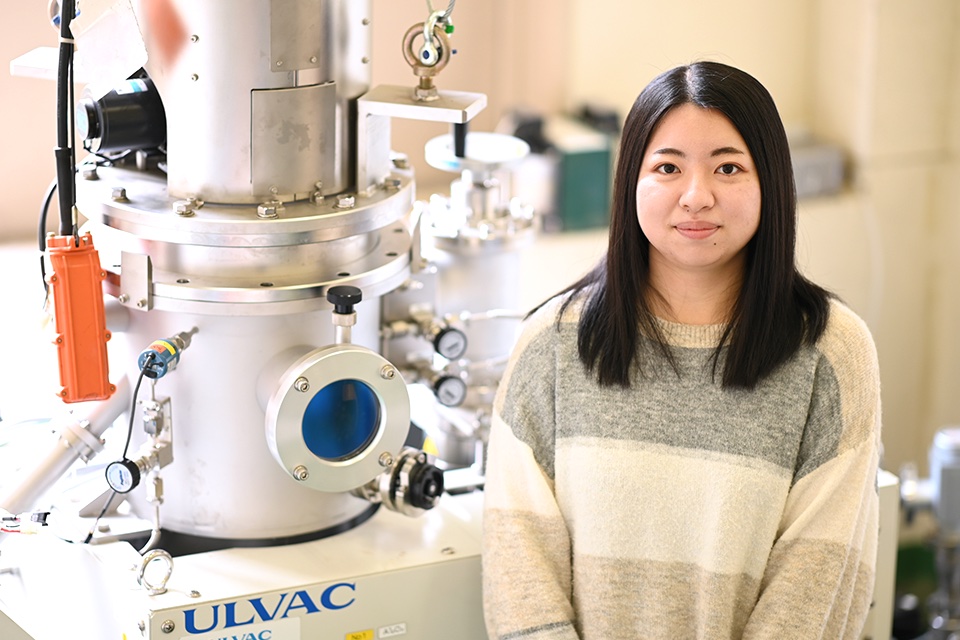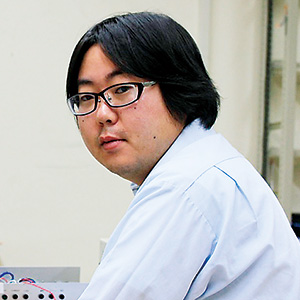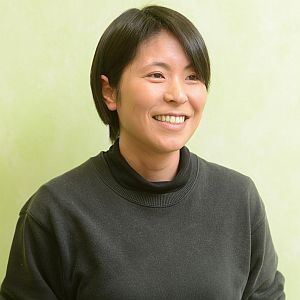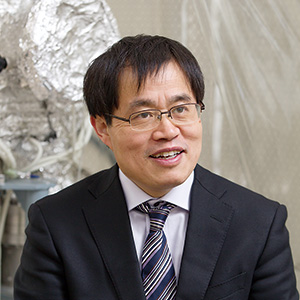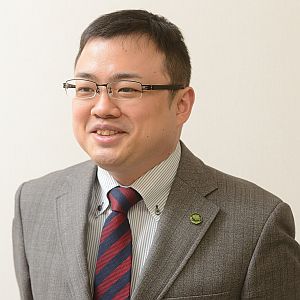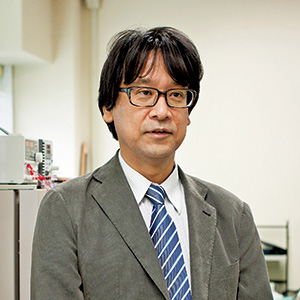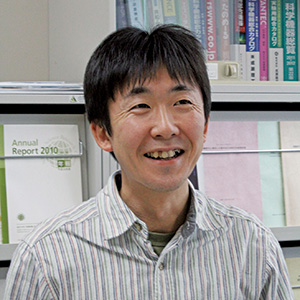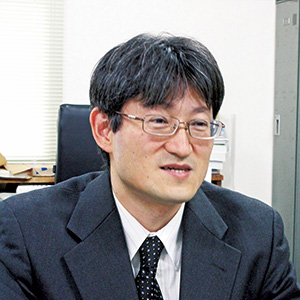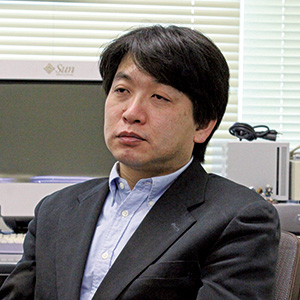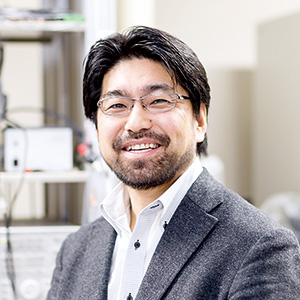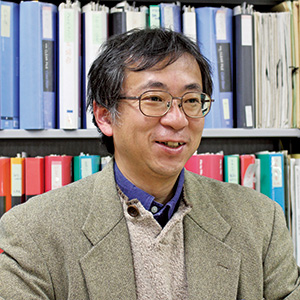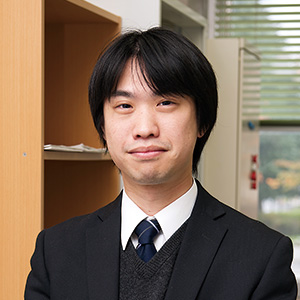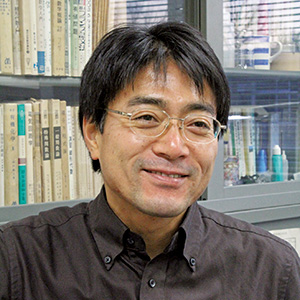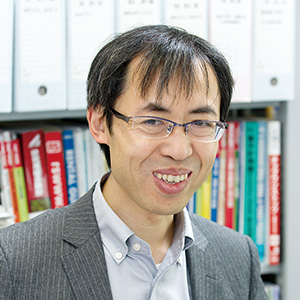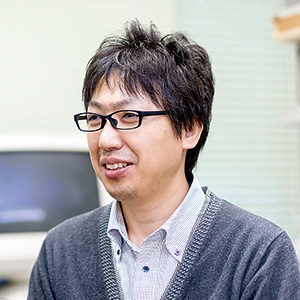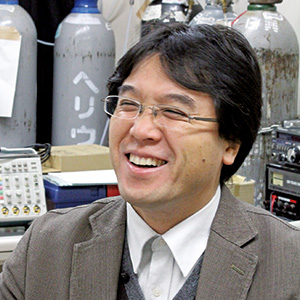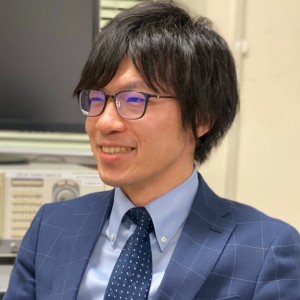We aim to “create a sustainable society that is friendly to humans and the earth” by utilizing the properties of electricity.
This is what is great about this course!
Today, an ambient information society (Society 5.0) and SDGs society are underway. Specifically, ITS (Intelligent Transportation Systems), electric vehicles, advanced driver assistance systems, vital sensing, watch-keeping systems, energy harvesting, smart communities, energy management systems, renewable energy, non-invasive testing, and wireless power transfer are moving toward realization and development. Electricity is a discipline involved in all of these. Electricity is the discipline involved in all of these. In the course, students can learn a wide range of basic and applied knowledge through education and research activities in the fields of information and communication, and electrical and electronic engineering.
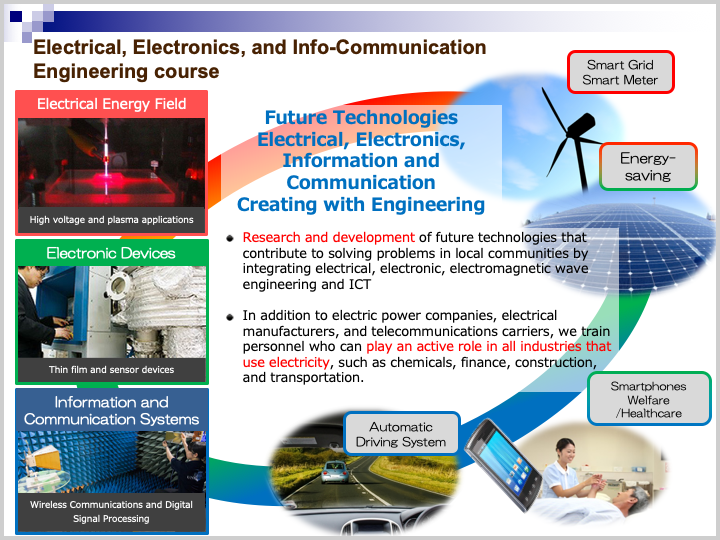
What is the course of study (and how is it applied to society)?
Due to its extraordinary flexibility in its mode of operation, electricity has an almost unlimited number of applications, such as a source of power for transportation, a source of light for illumination, and a source of information for communication. In order to cover such a wide range of science and technology efficiently, the course has established the following specialized fields of study: “Information and Communication Systems,” “Electronic Devices,” and “Electrical Energy,” to deepen and integrate the expertise of each research field. Examples include information and communication networks, signal processing, digital integrated circuits, semiconductors, magnetic devices, energy conversion, and high voltage and plasma. These are all related to the realization of Society 5.0 and the SDGs, and research that will lead to social implementations such as advanced transportation systems, environmental improvement and purification, vital sensing, energy harvesting, energy management systems, and wireless power transfer.
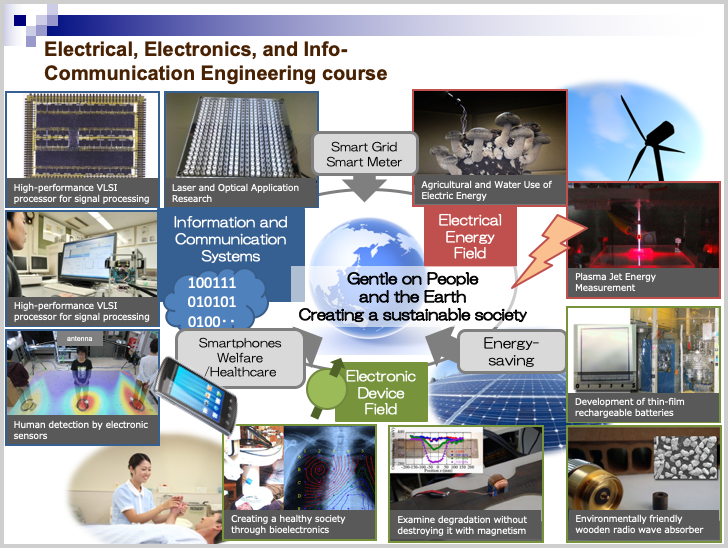
What can I learn and how can I grow?
The Course of Electrical, Electronics, Information and Communication Engineering aims to provide students with in-depth knowledge of electrical, electronics, information and communication engineering, a field of science and technology that forms the basis of modern society, from a broad perspective, and to cultivate outstanding practical skills for careers that require research capabilities and a high level of expertise. With “creation of a sustainable society friendly to humans and the earth” as a keyword, the educational curriculum, classroom lectures, practical training, and experiments are set up so that students can learn widely from the basics to the applications of electricity, electronics, measurement, control, and information communication through education and research activities in the fields of communication and electronic systems, electric energy, and electronic devices. The curriculum is designed to allow students to learn a wide range of subjects from the basics to the applications of electricity, electronics, measurement, control, information and communication. By progressing through the year, upon graduation, students will have the technical skills to solve the problems of modern society and be active in society as researchers, scientists, and engineers who are capable of working on a global scale.
What are the expected career paths after graduation?
Graduate school, etc. (about 65% of graduates), electric power companies (Tohoku Electric Power, Tokyo Electric Power, J-POWER, etc.), telecommunications (NTT East, NTT Docomo, Nihon Denpa, etc.), electric equipment-related companies (Hitachi, Toshiba, Mitsubishi Electric, etc.), semiconductor industry (Kioxia, Tokyo Electron, NEC, etc.), IT industry ( Toshiba Digital Solutions, Itochu Techno-Solutions, etc.), measurement industry (Anritsu, etc.), transportation (JR East, JR Hokkaido, etc.), teachers (mathematics), civil servants (national and local)



